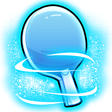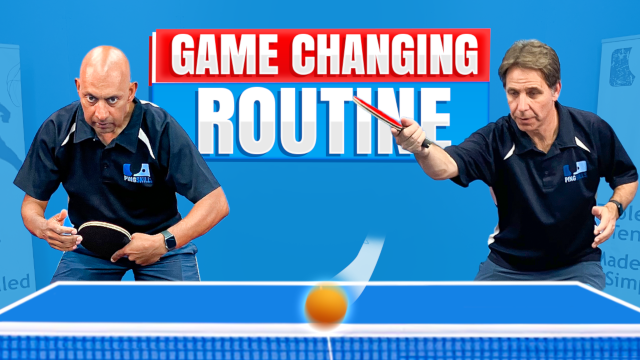Going from practice to game results
General
Christian Unknown Asked 15 years ago
Hello,
How do you speed up the process of translating skills that are being learned during drills into successful use during game situations?
I developed several bad habits early on when I was learning to play without a coach. Recently, I started receiving proper coaching, and I'm trying to get rid of all these different bad habits. I noticed that when I'm practicing, I am generally able to get rid of the bad habits even during semi-random/random drills. However, the instant I start playing a match, my bad habits resurface.
Thanks.
Christian
 Alois Rosario Answered 15 years ago
Alois Rosario Answered 15 years ago
Hi Christian,
This is a common problem.
One way of speeding up the process is to set up some game where you must do the technique properly to score a point. This may also be the only way that you are allowed to score a point.
For example, if you are training to do your forehand topspin against a backspin ball, you may set up a game where you score a point every time you make a topspin against backspin. This can be the rule for both players. It doesn't matter if the opponent returns this ball you still score a point. This forces you to apply this technique.
If you have someone such as your coach watching you play the games, he can judge on these. You could also make the rule that every time you execute your backhand counterhit with good technique you score an automatic point.
So the basic idea is to take the focus away from scoring in the traditional manner and putting the focus on the technique you are tyring to improve.
I hope this helps.
Recommended Video
The Practice Routine That Will Transform Your Table Tennis Game!
Feel like you're practicing but not improving fast enough? The secret isn’t just hitting more balls—it’s having a smart and effective practice routine. In this episode of the PingSkills Show, we walk you through how to train with purpose, so every session moves you closer to your goals.
What You’ll Learn:
✅ How to structure your practice for maximum improvement
✅ The right balance of technical drills, match play, and serve practice
✅ Common training mistakes and how to avoid them
✅ Real drills you can start using right away (even solo!)
Whether you’re training alone or with a partner, this episode will give you the tools you need to train smarter—not just harder.
Watch NowThoughts on this question
Become a free member to post a comment about this question.

Martin Kowalski Posted 15 years ago
I´ve got exactly the same problem. I think in a match situation you have no time to think about the correct execution of a technique, so your body automaticly does what it was used to do.
Thanks for the advice Alois, I´ll try to play some games with a specific focus and see how it works!
andrew brand Posted 15 years ago